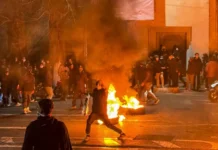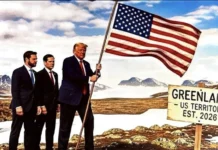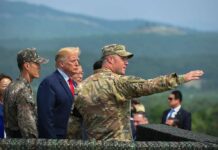“Workers of the world unite!”
The Communist Manifesto was written in a period of revolution in Europe. However these revolutions, which ushered in the rule of capitalism, resulted in defeat for workers, and revealed the need for independent workers’ organisation. Between 1848 and 1864 there was a period of huge capitalist development and hence the size and influence of the working class. Before the setting up of the First International there were an increasing number of workers’ struggles across Europe.
The International Working Men’s Association (IWMA) was set up in 1864 in London. It was short-lived, but important in laying the basis for later developments. It brought together a wide range of different political views including British trade unionists, various European socialists and radicals. Marx and Engels did not initiate the organisation, but they rapidly played a key role. The International played a practical role in building workers’ solidarity. Marx explained: “It was not the International that threw workers into strikes, but on the contrary, it was the strikes that threw workers into the International”.
Political debate between different political trends in the International continued. Despite this, during a period of rising class struggle, the organisation held together. However, in 1868 the Russian anarchist Bakunin joined, beginning a major struggle with Marx within the International. The key turning point was the ‘Paris Commune’ of 1871 – an heroic workers’ uprising, arising out of the Franco-Prussian war. It lasted only three months before being crushed, but was rich in lessons for future struggle.
It gave a glimpse of a democratic workers’ state during that period. The first act of the elected commune, was to abolish the standing army. It cut rents and limited the salaries of all officials to workers’ wages. It planned to re-open factories closed by bosses, under the control of their former workers, although it stopped short of taking over the French national bank. However, it was defeated due to its isolation within France. The French national government sent in a fresh army, and with the connivance of the Prussian army, eventually massacred 30,000 workers.
This was followed by a period of retreat by the workers’ movement internationally. The internal battles within the IWMA came to the fore, especially the conflict between Marx and the anarchists over critical issues. The key dispute was over the role of the ’state’. In the words of Engels, Bakunin “does not regard capital, and therefore the class contradiction between capitalists and wage earners as the main evil to be abolished, instead he regards the state as the main evil.”
Under capitalism the main role of the state is to maintain the rule of the capitalist class. Marx and Engels drew the conclusion from the Paris commune that the capitalist state has to be “smashed” and that in order to take power the working class has to establish its own, democratic, state. To achieve this revolutionary change, the working class needs political organisation and an accountable leadership. The role of the workers’ state as a means of maintaining workers’ power would eventually “wither away”. However, in the short term it was necessary, not least to prevent the return of capitalist rule.
The splits in the International grew in “inverse proportion” to the strength of the workers’ movement. By 1876 Marx and Engels drew the conclusion that the International had done its job for the time being and that it was better to close it down while it still had its spotless banner. However what it achieved was to prepare the way for later mass parties and international organisation founded on the basis of Marxism.
The struggle between reformism and revolutionary socialism
The Second International was founded in 1889 with delegates from 20 countries. It reflected the establishment of powerful new parties created on the basis of Marxist ideas. Marx’s closest collaborator Engels was elected honorary president of the international socialist congress in 1893, two years before he died. The key party within it was the German Social Democratic Party (SPD). At that time the term ’social democratic’ didn’t have the connotation it has today. It meant ‘Marxist’.
Formed in the 1870s, under conditions of illegality, the SPD had grown rapidly and declared itself a revolutionary party. In 1890 the SPD got 1.4 million votes. By 1912 it had become enormously powerful. With 35% of the popular vote it had 110 seats out of 400 in the Reichstag (parliament). It had one million members, 15,000 full-time organisers, 90 daily newspapers and 2.5 million affiliated trade unionists. But the growth of the SDP took place with the background of a huge upswing in capitalism. It meant that there was a period of concessions to the power of workers in Germany by the ruling class. To the main leaders of the SDP it began to seem that they could achieve continual improvement to the living standards of workers, and that it would be possible to take control of society gradually, what Marxists call ‘reformism’.
MPs and trade union leaders became comfortable with their positions within capitalism. They did not understand that capitalist growth would not last, and that the bosses would ruthlessly fight to keep control of their system. Reformist pressures were eventually also reflected within the social democratic movement internationally. One of the main leaders of the SPD, Eduard Bernstein, elucidated a theory to justify this approach, couched in Marxist language, known as ‘revisionism’. He argued that capitalism had overcome its contradictions and that its boom-slump cycle had been eliminated.
Bernstein argued that by the use of credit, capitalism had eliminated its difficulties – sounds familiar! Many of the arguments since then that are frequently raised against Marxists, were his, eg skilled workers are now ‘middle class’, joint stock companies mean wider share ownership giving more people a stake in the system, and that the capitalist state could gradually be ‘democratised’. Genuine revolutionaries, such as Rosa Luxembourg, fought these ideas. She explained what is clear to us today, that credit would only exacerbate crisis when it comes and that the changes in capitalism had not altered its fundamental character. Whilst Marxists fight for every reform, every step forward, to keep those gains it is necessary to have a revolutionary removal of capitalism.
Karl Kautsky, regarded as the “pope of Marxism”, also argued with Bernstein. However he took a less clear, ‘centrist’ line, also a reflection of the revisionist pressures. From outside Germany, even Lenin didn’t see how far the process of degeneration had gone. The consequence of this reformism was fully realised with the outbreak of World War One in 1914, which was the consequence of the growing imperialist rivalry between the major capitalist states. The Second International had taken previous positions in opposition to the coming imperialist war, as recently as the 1912 Basle congress. It had called for a general strike on the outbreak of war to oppose the mass slaughter that would follow.
The difference between the programme in words and the actions of the leaders became stark. The accommodation with capitalism by reformist leaders led them to support their own capitalist class in the war. When the Reichstag voted on the war budget on 4 August 1914 initially only one member, Karl Liebknecht, voted against. The International was shattered by the betrayal of so-called ‘Marxists’ who supported the sending of ‘their own’ working class people to kill others on behalf of ‘their own’ capitalist class. Those who opposed the war were isolated. Liebknecht and Rosa Luxembourg were jailed for their stand in opposition to the war.
The war ended with a transformation of the situation: Revolutionary movements broke out internationally. In Russia, the working class came to power lead by the Bolsheviks. In Germany, the revolutionary movements that took place were betrayed by the SPD, who effectively handed power back to the capitalists. Rosa Luxembourg and Karl Liebknecht were murdered by the Freikorps with the connivance of the SPD war minister, Noske. The lesson for the future has to be, that no matter how powerful the workers’ movement is, clarity of ideas on the need to get rid of capitalism is crucial.
Rise and fall of the Third (communist) International
The Third International, founded in March 1919 by Lenin and Trotsky, was wound up by Stalin in 1943 at the behest of Roosevelt and Churchill.
By Bill Mullins, Socialist Party
It was founded as a world party of proletarian revolution following the Russian revolution and came to its ignominious end as a small item on the agenda of the allied war leaders at their 1943 Tehran conference. The founding of the Third International came at a time of the collapse of world capitalism following World War One, which in turn resulted in worldwide revolutionary movements in mass revulsion against a system that had led to 30 million deaths. It came about, above all, because the successful 1917 Russian revolution demonstrated to the masses that there was a socialist alternative to the capitalist system. The post-war period saw not only the revolution in Russia but also revolutionary movements in Germany, Hungary, Italy, and later on in Britain with the general strike of 1926.
More and more, politically conscious workers were drawing the conclusion that a Lenin-type revolutionary party was needed if the working class was to take power in their own countries. At its founding conference in March 1919 the leaders of the Third International called for worldwide revolution and sent greetings to the ‘red army’ in Russia, which under Trotsky, was fighting against the 21 armies of intervention from the capitalist countries that were trying to crush the Russian revolution. Trotsky’s writings on the ‘first five years of the Third International’ are a treasure house of material that formed the theoretical basis of the international.
Armed with its early programme, the Third International oversaw the development of mighty Communist Parties in Germany, France, Italy, Czechoslovakia and small but important communist parties in Britain and Australia. In many of these countries the new communist parties were formed out of the old social democratic parties. In 1923, with the German economy suffering hyperinflation, a revolutionary wave swept the country. But due to the vacillation of Communist Party leader Heinrich Brandler and the increasingly Stalinised Third International, a revolutionary opportunity was lost. The failure of revolutions elsewhere led to the isolation and bureaucratisation of the Russian workers’ state. This in turn led to the political degeneration of the Third International. It increasingly reflected the internal Russian political situation and in the end became no more than, in Trotsky’s words, “the border police of the Stalinist bureaucracy”.
Stalin came forward with his infamous policy of ’socialism in one country’, a justification for the holding back of international revolutions. Stalin’s external vacillations mirrored the sharp and sudden shifts of policies inside Russia itself. This first included a rightward shift as the Stalinist bureaucracy attempted to develop the economy by leaning on a growing capitalist strata of rich peasants. When this threatened the very existence of the ruling regime, Stalin and his clique switched to an ultra-left position both domestically and externally.
In Germany it resulted in the Communist Party declaring the social democrats as no different to the Nazis. In this so-called ‘third period’, international capitalism was supposed to finally collapse and the communist parties would come to power. Trotsky (now in exile) had called for a united front of the communist parties and the social democratic parties against the threat of fascism. For this he and his supporters internationally were roundly condemned by Stalin’s third international. In Britain, the Daily Worker (the forerunner of the Morning Star) declared Trotsky ‘a counter revolutionary’. As a result of this false Stalinist policy the German working class were split and paralysed allowing the Nazis, in the words of Trotsky, to ‘come to power without a pane of glass being broken’.
Following this catastrophe the Comintern (as the Third International was then called) performed another about turn and declared not just the need for a united front with other workers’ parties but a ‘popular front’ with capitalist parties as well. This led, in the case of the Spanish revolution, to the Communist Party blocking with the liberal capitalists in a popular front government and defeating the 1930s revolution. With the outbreak of World War Two the Third International had completely run its course and at the Tehran conference was tossed to one side by Stalin.
The Fourth (’Trotskyist’) International
On 3 September 1938, just 21 delegates, representing eleven countries, met in conditions of extremely tight security, near Paris, for the founding conference of the Fourth International – the ‘world party of socialist revolution’.
By Niall Mulholland, Socialist Party
Leon Trotsky, the main inspiration and organiser behind the declaration of the new International, considered it his most important work; to preserve, defend and develop the priceless heritage of genuine Marxism, in a time of big defeats and betrayals for the international working class. The Fourth International emerged out of a struggle that began in the Soviet Union in 1923, shortly before the death of Lenin, and then spread throughout the world. This was a struggle for genuine Bolshevism, initiated by Lenin and continued by the Left Opposition and later the International Left Opposition, led by Trotsky, against the privileged, Soviet bureaucracy led by Joseph Stalin.
Stalin’s ’socialism in one country’ theory, Trotsky warned, would lead to disastrous policies within Russia and transform the Communist International (Comintern) into a counter-revolutionary tool of Kremlin foreign policy. Trotsky was proved correct but the mood of isolation and despair among the Russian masses resulting from international defeats strengthened the Stalinist bureaucracy.
By the end of 1927, the dominant Stalin faction had decisively defeated the Left Opposition, imprisoning or exiling its leaders. In February 1929, Trotsky was deported to Turkey. By then expelled Communist Party members in Europe and the Americas had created small groups that proclaimed sympathy or solidarity with the Left Opposition. Until 1933, Trotsky argued that the communist parties still represented the most militant sections of the working class, despite their Stalinist leaderships. Big events, inside and outside the Soviet Union, could stir the masses and give the Left Opposition the chance to grow rapidly.
However, Trotsky changed his position when Hitler took power in 1933 and smashed the mighty organisations of the German working class, including the Communist Party, without a struggle. This signalled the collapse of the Third International and the adoption by the Stalinist leadership of a policy of conscious counter-revolution. A ‘political revolution’ would be necessary in the Soviet Union to overthrow the Stalinist bureaucracy and to restore real workers’ democracy.
Prior to the founding conference of the Fourth International, the working class suffered historic setbacks, including the defeat of the Spanish revolution. The Fourth International’s small forces were then hit hard by wartime conditions, with many of its young militants killed either at the hands of fascism or of Stalinism. The greatest blow was the assassination of Trotsky by a Stalinist agent, in Mexico, August 1940.
Post-war developments
Nevertheless, Trotsky’s political prognosis, that the coming world war would provoke mass revolutionary movements, was proven generally correct. Europe was swept by revolutionary movements after World War Two and the working class could have come to power in a number of countries, if it had a leadership worthy of the name.
A successful revolution in any one European country would have marked the start of a European and world socialist revolution, which would have also swept away Stalinism and reintroduced workers’ democracy in the Soviet Union. But the social-democratic and communist parties, which had a mass base and influence among the working class in Europe at the time, diverted a socialist transformation, saving capitalism. The Fourth International was unable to play a decisive role. Moreover, in the post-war period, it did not succeed in becoming a mass force because of a combination of unfavourable objective factors and difficulties, together with the mistakes made by its leaders.
In some cases, Trotskyism had a powerful effect on the workers’ movement, such as in Sri Lanka, Latin America, Vietnam, France; and in Britain in the 1970s and 1980s under the banner of the Militant (forerunner of the Socialist Party). The ‘Militant tendency’ led the 1983-86 Liverpool council struggles against the Thatcher government and the successful mass anti-poll tax campaign of 1989-90. The Committee for a Workers’ International (CWI), established in 1974, developed rapidly in the 1970s and 1980s and now has sections and groups in around 40 countries, on four continents (for more details see: A Socialist World is Possible – History of the CWI, by Peter Taaffe).
Today, with world capitalism in its gravest crisis since the 1930s, there is a crying need for a mass political alternative of the working class. The task of the CWI is to help to create the conditions for the formation of such an international. However, this is only possible on the basis of learning from the lessons of the past and, particularly, from the failings of previous internationals.
The Committee for a Workers’ International (CWI) is the socialist international organisation with which chinaworker.info is in political solidarity. The CWI is organised in 40 countries and works to unite the working class and oppressed peoples against global capitalism and to fight for a socialist world.
For more information visit: www.socialistworld.net




